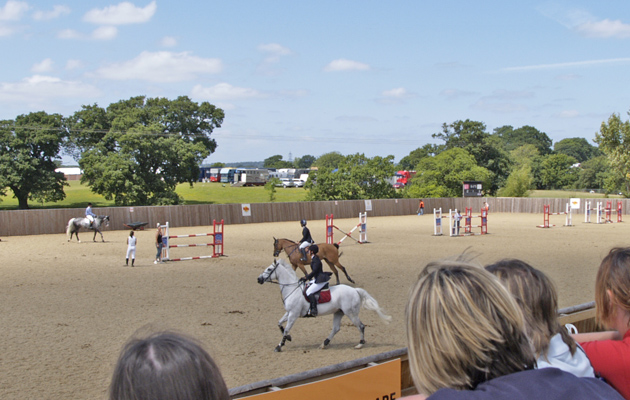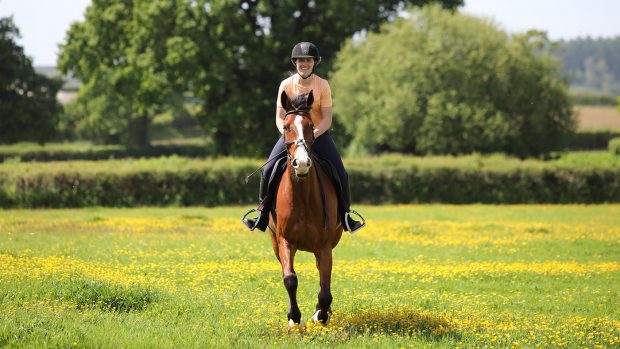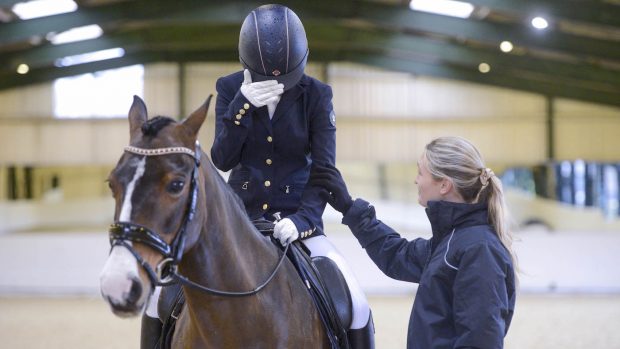Performance psychologist and mental coach Charlie Unwin tells riders how boost their performance by building an identity, and learning how to deal with both success and failure
Winning rosettes – or just doing the best you can do – is not simply about you and your horse being physically talented enough to do a good job. Rider psychology plays a massive part in how you perform under pressure in the ring.
Performance coach Charlie Unwin works across sport, business, and the military to help riders optimise their performance from the inside out in training and competition. The proof is in the pudding – his clients won four gold medals in Tokyo last summer, as well as three silvers and one bronze.
Here, he explains two ways he helps riders improve their performance by working on their mindset.
Rider psychology: build your identity
Charlie explains that “identity is the story that we tell ourselves about ourselves”.
“We are not always conscious of it, so we have to work on this story, this inner voice that guides us and helps us to perform at our best,” he says. “We need to be the best version of ourselves, within our own personality. You cannot try to be someone you are not. It’s no use pretending to be Charlotte Dujardin or Michael Jung as you will only be a lesser version of someone else. Of course, take bits of inspiration from these riders, but Michael has spent his life working on his own story and strategy, his system, with his resources. A strong identity is formed by developing our own system to work with our own personality.”
Whereas, for example, a pair of skis or a tennis racket is an inanimate object, our living, breathing partner brings several different elements to the game.
“In equestrian sport more than any other, we bring our own personality and circumstances to our goals,” he says. “We don’t all have the same horse, the same amount of money, and we have different goals and aspirations. We cannot translate from other people’s journeys but must be comfortable with our own and the progress we are making. Yet we still compare ourselves to others and other horses, rather than finding our own inner voice.
“Identity is linked to drive and motivation, which comes from a place where we love what we do. Research shows that when we are intrinsically motivated, doing something for the love of it rather than what other people (owners, the team) expect of us, we are at our most profoundly powerful, resilient and persistent.”
Deal with success and failure
For any sportsman, winning and losing is part of the deal. Each situation can be a learning experience.
Charlie quotes Aldous Huxley, who said, “Experience is not what happens to you; it’s what you do with what happens to you.”
“We don’t get better just from spending time in the saddle, but how we make sense of that time,” he says. “Every experience and how we deal with our emotions can make us better. How we process a good or bad experience will affect how we go into it next time. After every performance, we need to analyse it simply. Did I do what I set out to do? Often any goals will have been masked by the feeling of the result, so remember what you originally committed to doing. Sometimes, we need to let the emotions – guilt, frustration, anger – subside over 24 hours before trying to reflect.
“A great tactic is to have a performance journal for training and competition. On the left-hand side, write down what you want to achieve – your ‘feed-forward’. Be really specific and simple, like ‘an accurate test with sharp transitions’, or ‘keep breathing from start to end’. The right-hand side links up to the left with accurate analysis on what you said you’d do (feedback). It joins the dots and gives you something to work on positively, to take responsibility for what you did.
“Dealing with success is also challenging, as you need to recognise what you’ve done well to be able to repeat it and become consistently progressive. You should have five things you’ve done well for every two things you didn’t, to build up a bank of things you’re good at. Reflect on them and relive them, so you can recreate the goodness in those things.”
- For more tips and details on psychology and coaching courses, visit centre10.com
You may also enjoy reading…

Get ready for the new season – how to perform under pressure

Transform rider nerves into positive energy with Charlie Unwin’s expert tips

Subscribe to Horse & Hound magazine today – and enjoy unlimited website access all year round
Horse & Hound magazine, out every Thursday, is packed with all the latest news and reports, as well as interviews, specials, nostalgia, vet and training advice. Find how you can enjoy the magazine delivered to your door every week, plus options to upgrade your subscription to access our online service that brings you breaking news and reports as well as other benefits.





